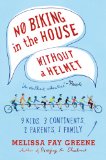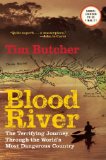Summary | Excerpt | Reading Guide | Reviews | Beyond the book | Read-Alikes | Genres & Themes | Author Bio

A Family Memoir
by Neely TuckerAgainst a background of war, terrorism, disease and unbearable uncertainty about the future, this story of how a foreign correspondent and his wife fought to adopt a Zimbabwean baby emerges as an inspiring testament to the miracles that love and dogged determination can sometimes achieve. Don't miss this gripping memoir.
Winner of the 2005 BookBrowse Sapphire Award for Most Popular Debut
Foreign correspondent Neely Tucker and his wife, Vita, arrived in Zimbabwe in 1997. After witnessing firsthand the devastating consequences of AIDS on the population, especially the children, the couple started volunteering at an orphanage that was desperately underfunded and short-staffed. One afternoon, a critically ill infant was brought to the orphanage from a village outside the city. She’d been left to die in a field on the day she was born, abandoned in the tall brown grass that covers the highlands of Zimbabwe in the dry season. After a near-death hospital stay, and under strict doctor’s orders, the ailing child was entrusted to the care of Tucker and Vita. Within weeks Chipo, the girl-child whose name means gift, would come to mean everything to them.
Still an active correspondent, Tucker crisscrossed the continent, filing stories about the uprisings in the Congo, the civil war in Sierra Leone, and the postgenocidal conflict in Rwanda. He witnessed heartbreaking scenes of devastation and violence, steeling him further to take a personal role in helping anywhere he could. At home in Harare, Vita was nursing Chipo back to health. Soon she and Tucker decided to alter their lives forever—they would adopt Chipo. That decision challenged an unspoken social norm—that foreigners should never adopt Zimbabwean children.
Raised in rural Mississippi in the sixties and seventies, Tucker was familiar with the mores associated with and dictated by race. His wife, a savvy black woman whose father escaped the Jim Crow South for a new life in the industrial North, would not be deterred in her resolve to welcome Chipo into their loving family.
As if their situation wasn’t tenuous enough, Zimbabwe President Robert Mugabe was stirring up national fervor against foreigners, especially journalists, abroad and at home. At its peak, his antagonizing branded all foreign journalists personae non grata. For Tucker, the only full-time American correspondent in Zimbabwe, the declaration was a direct threat to his life and his wife’s safety, and an ultimatum to their decision to adopt the child who had already become their only daughter.
Against a background of war, terrorism, disease, and unbearable uncertainty about the future, Chipo’s story emerges as an inspiring testament to the miracles that love—and dogged determination—can sometimes achieve. Gripping, heartbreaking, and triumphant, this family memoir will resonate throughout the ages.
Love in The Driest Season won the 2005 BookBrowse Sapphire Award for Most Popular Debut. As such, BookBrowse, and the more than 1000 BookBrowse members who rated books as part of the 2005 Awards, recommend it highly!..continued
Full Review
 (1 words)
(1 words)
(Reviewed by BookBrowse Review Team).
Zimbabwe (formerly known as Rhodesia) is a landlocked nation in the southern
part of Africa surrounded by the countries of Zambia, Botswana,
Mozambique and South Africa.
According to the
CIA
Factbook, its population is approximately 12 million. Per capita
income is $1,900 and the % of those with AIDS/HIV is 34%. The official
language is English with an adult literacy rate of 90%.
In 1965 the country declared its independence with the first free elections
held in 1979. Robert Mugabe (a committed Marxist) has
been the nations first and only ruler since then, surviving through a canny
combination of dirty politics and intimidation including a bit of ethnic
...

If you liked Love in the Driest Season, try these:

No Biking in the House Without a Helmet
by Melissa Fay Greene
Published 2012
A loving portrait of a unique twenty first-century family with nine children as it wobbles between disaster and joy: "We so loved raising our four children by birth, we didn't want to stop. When the clock started to run down on the home team, we brought in ringers."

by Tim Butcher
Published 2009
An utterly absorbing narrative that chronicles Tim Butcher’s forty-four-day journey along the Congo River, Blood River is an unforgettable story of exploration and survival.